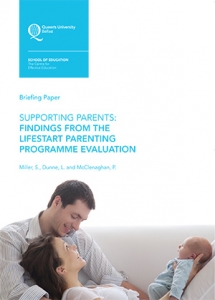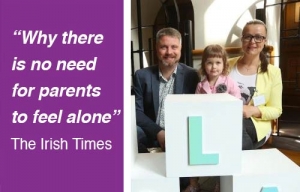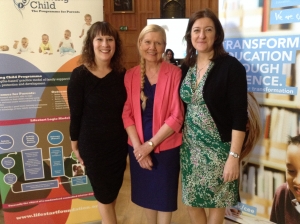In  order to scientifically establish if the Lifestart Growing Child programme could actually make a difference to parenting and child outcomes in ways that would improve children’s life-chances, it was rigorously tested by independent evaluators through a randomised controlled trial from 2008-2014. Alongside the trial a qualitative process evaluation was conducted to explore the pathways through which the programme works (in other words not only if it works but how it works!)
order to scientifically establish if the Lifestart Growing Child programme could actually make a difference to parenting and child outcomes in ways that would improve children’s life-chances, it was rigorously tested by independent evaluators through a randomised controlled trial from 2008-2014. Alongside the trial a qualitative process evaluation was conducted to explore the pathways through which the programme works (in other words not only if it works but how it works!)
The RCT evaluation represents a robust test of the effectiveness of the Lifestart Programme on parent and child outcomes. A rigorous experimental design was used to ensure that the 424 participants across Ireland were randomly allocated to either the intervention or control group. At baseline (pre-test) these two groups were equivalent in terms of both demographic characteristics as well as pre-test measures of the outcomes. This balance between the two groups increases overall confidence that the improvement in outcomes for the intervention parents and children at the end of the study is an unbiased reflection of the impact of the programme.
The findings from the Lifestart longitudinal study are also consistent with, and add to, the wealth of evidence which shows that home based parenting programmes (like Lifestart) are an effective and cost effective way of improving parent and child outcomes in the short and long term.
Key Conclusions of the Study
- Lifestart is effective in improving parent outcomes: Lifestart parents report reduced parenting related stress, increased knowledge of their child’s development, and improved confidence in their parenting role. Given that Lifestart is an inexpensive, non-intensive programme these findings are extremely positive and encouraging.
- Lifestart works as intended, impacting primarily on parent outcomes with positive changes in child outcomes, specifically: higher cognitive development, increased prosocial behaviour, decreased difficult behaviour and fewer speech and language referrals. Research suggests that there may well be benefits downstream for the child, as they get older and progress through school.
- Lifestart was perceived by parents to be a non-judgemental source of advice and information. The role of the Family Visitor was identified as one of the key components of the programme, providing knowledge, support and encouragement.
- These findings are consistent with the wealth of evidence which shows that home based parenting programmes like Lifestart are an effective (and cost effective) way of improving parent and child outcomes in the short and long term.
What the results mean in context
The results of the Lifestart evaluation adds to the weight of evidence which shows that home visiting programmes are an effective means of improving parent and child outcomes and the effect sizes in this study have proven to be commensurate with those reported in a number of meta-analyses.
Sweet and Applebaum’s 2004 meta-analysis of sixty U.S. home visiting programmes reported effect sizes very much in line with those reported in the Lifestart evaluation, providing robust supporting evidence that home visiting programmes such as Lifestart can make an important and positive impact on both parent and child outcomes.
 To download the summary report click: Lifestart RCT Briefing Summary
To download the summary report click: Lifestart RCT Briefing Summary
The full technical report can be accessed at: www.qub.ac.uk/cee


